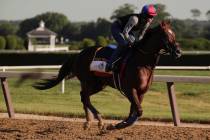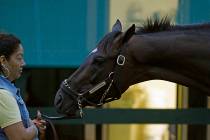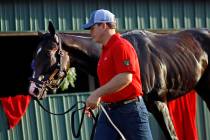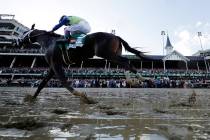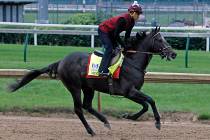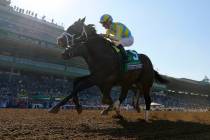Horse racing tries to change tax rules on betting
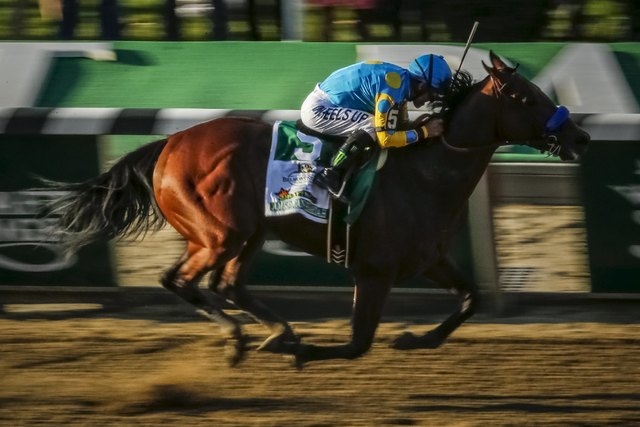
The focus of horse racing has been on American Pharoah, and for good reason. To claim the Triple Crown by winning the Kentucky Derby, Preakness and Belmont Stakes is rare air for the sport.
However, as popular as American Pharoah’s feat was, it pales by comparison in importance to some grunt work being done by the National Thoroughbred Racing Association.
Led by Alex Waldrop, NTRA president and CEO, the NTRA and its lobbyists have been talking with the United States Treasury and the IRS about modernizing a key tax regulation as it pertains to parimutuel wagering.
On a level of horseplayer interest, this debate is a 1 compared to American Pharoah at 10. But as I wrote last week, the triumph by American Pharoah did not correct a single business issue hindering the growth of horse racing. The work of the NTRA will.
For as long as I can remember, horseplayer winnings are subject to a withholding tax if the proceeds exceed $5,000 or are at least 300 times as large as “the amount of the wager,” which back then was typically a $2 unit.
The latter rule is what the NTRA is hoping to redefine.
The 300-1 rule was written decades ago when most bets were in the win, place and show pools and early daily double. Today, with the rise of exotic wagering on multihorse and multirace bets, there are a lot of winning parimutuel tickets paying more than $600 for $2.
What the NTRA has proposed is changing the wording to “amount wagered.” That one simple change would free up millions of dollars to horseplayers to be churned through the parimutuel system. And that additional betting would increase overall tax revenues, not decrease it.
Getting things changed in Washington though is akin to watching thick molasses roll downhill.
Once the NTRA got on the IRS docket for a June 17 hearing in Washington, there was a 90-day public comment period. The NTRA solicited the support of 11,665 comments, plus dozens of documents from horse racing organizations.
When Waldrop went to the IRS hearing in Washington, he had 10 minutes to plead this case.
A good example he put forth was using the $634.10 payoff on a winning $1 superfecta ticket on the Kentucky Derby.
Anyone who won the Derby superfecta had to pay taxes on it, regardless of how much a person bet in total. Thus, for example, if you bet a 5-horse $1 superfecta box costing $120, you paid taxes even though your profit on the win was just $514.
This is one rule change that I know our race books are 100 percent behind. Just think of the riddance of so much red tape paperwork. And bettors would be paid in cash instantly to be rebet into the parimutuel system.
Now many of you file itemized taxes, which permit you to offset taxable winnings to the amount of your proven losses. But many weekend players do not, or cannot, take advantage of this tax break.
If the Treasury and IRS approve the change, in the future you might be positively impacted the next time you win a sizable Pick 5 or Pick 4 bet.
Richard Eng’s horse racing column is published Friday in the Las Vegas Review-Journal. He can be reached at rich_eng@hotmail.com. Follow him on Twitter: @richeng4propick



